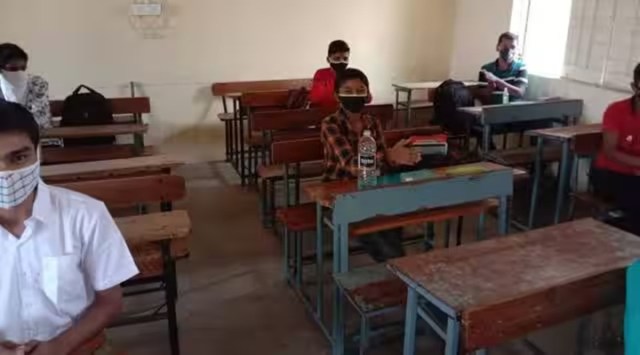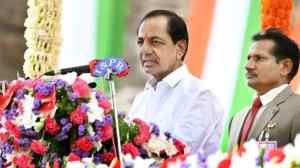Click here to join Express Pune WhatsApp channel and get a curated list of our stories
Literacy programme adds to non-academic work of ZP teachers
The final straw in this case was the statze education department's directive, asking teachers to partake in a survey for the New India Literacy Programme (NILP) — a centrally sponsored scheme, which aims to educate at least 5 crore illiterate people above the age of 15 from across the country.
 Teachers claim that the out-of-school surveys for children up to 14 years — who have not enrolled — were done before the beginning of the academic year in June. (Representational/File)
Teachers claim that the out-of-school surveys for children up to 14 years — who have not enrolled — were done before the beginning of the academic year in June. (Representational/File) A directive from the Maharashtra education department to conduct surveys for a literacy campaign has not gone down well with Zilla Parishad school teachers, who are already overworked and struggling for time to teach — amidst daily requests for different types of data from the government and audits for mid-day meals and uniforms.
The teachers have decided to take a mass casual leave on September 5 — celebrated as Teachers’ Day — and to boycott their auditing of mid-day meals.
The final straw in this case was the statze education department’s directive, asking teachers to partake in a survey for the New India Literacy Programme (NILP) — a centrally sponsored scheme, which aims to educate at least 5 crore illiterate people above the age of 15 from across the country.
According to Director of Education Mahesh Palkar, who has sent out a directive urging ZP teachers to conduct the survey earlier this week, the target for the state for the last financial year and the current one combined is to educate 12,40,000 people between 15 and 35 years old. This is around 8-10 per cent of the over 1,63,00,000 illiterate population in the state, as per data from the 2011 census.
The survey, which started on August 17, is scheduled to be completed by August 31. “We have the numbers, but not the names of the illiterate people, and the survey will provide us with that information. The out-of-school surveys for children up to 14 years that teachers conduct are underway. We are only saying they collect information of uneducated people in the age group of 15 and above. We are not asking them to step out for the survey, all they have to do is write a name. The form only has simple spaces for gender or cellphone number, or has to only to tick mark,” Palkar told The Indian Express.
On the other hand, teachers claim that the out-of-school surveys for children up to 14 years — who have not enrolled — were done before the beginning of the academic year in June.
Vijay Kombe, state-level association of primary teachers, ZP schools, said, “The out-of-school surveys are done before the academic session begins, and we do not refuse doing so. But, the NILP survey for those above 15 years is different, and we will have to go door-to-door again for this… The form needs everything from date of birth to Aadhaar card number, cellphone number, WhatsApp number, education level details, and number of family members… For each household, we have to fill 90 columns. If you sit in a room with a smartphone, this seems like a five-minute task, but when you go to a village house, even filling an Aadhaar card number could take days as they may not know where they have kept the document or it has faded or the person concerned is not home.”
All types of information about students, government schemes and projects, furniture, grounds, toilets, and trees is asked by teachers,” said Holkar Nandubhau, former head of teachers association at Pune district level. “The Right to Education Act, 2009, disallows non-academic work for teachers except two tasks — direct election duty and census work — which happens once in 10 years. This kind of work hinders us from doing what we come here to do — teach.”
Dilip Khude, teacher at a ZP school in Baramati tehsil of Pune district, has been handling the responsibilities of a headmaster. “We receive requests for data from the government on Whatsapp every other day, which we have to send in excel sheets or enter on mobile applications. We have to maintain both online and offline records.”
There are neither computer systems nor clerks, so teachers are expected to bear their cellphone and Internet data costs. “Some teachers are not as adept on cellphones, and end up visiting Internet cafes when such work comes up. We have recently been given the task of auditing school uniforms as well,” said Khude, adding that as per the RTE, ZP teachers are responsible only for the education of children between six and 14 years. “Fulfilling this is already very difficult as there are over 30,000 vacancies for teachers at ZP schools. One teacher has to teach three to four classes. Almost 90 per cent of schools do not have headmasters. In such a scenario, should we teach students or conduct surveys which are not even our work?”
Click here to join Express Pune WhatsApp channel and get a curated list of our stories












